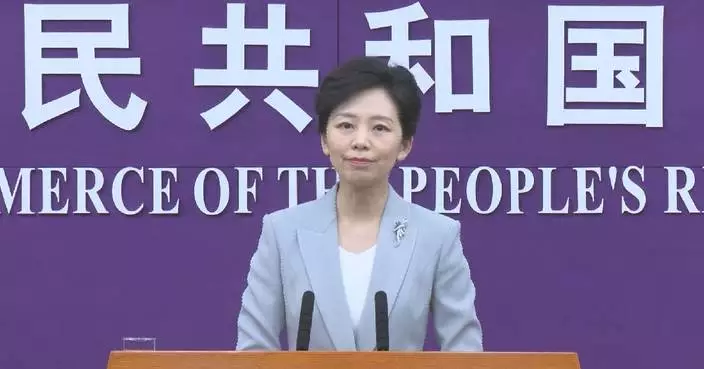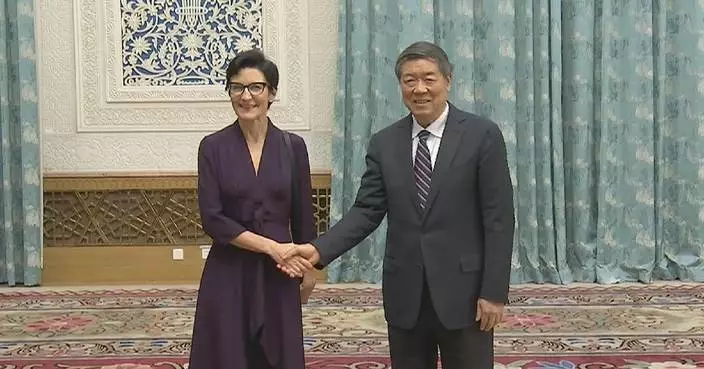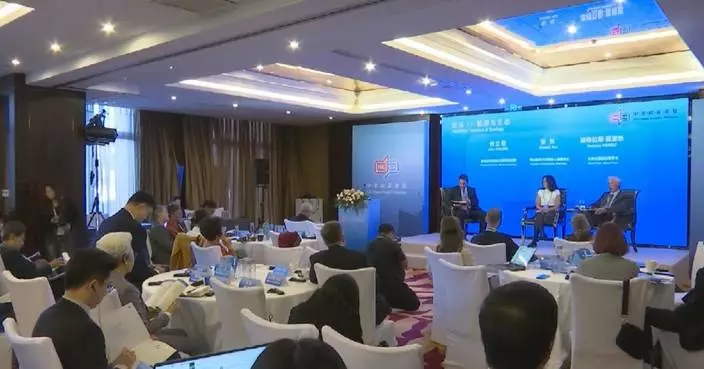China's manned space program has entered an advanced stage of space station application and development, and the manned lunar exploration project is progressing steadily, according to experts at the ongoing sixth Human Space Symposium.
The two-day symposium started on Thursday in Shenzhen, south China's Guangdong Province, and brought together over 800 experts and scholars from the manned space field to share cutting-edge academic research results and discuss the development blueprint of China's manned space program.
"Our space station is currently a three-cabin configuration, but it is designed with a capacity to be expanded to twice its current size. In the next 10 years, we will focus on the fields of human science, life science, microgravity science, astronomy, and basic physics," said Zhou Jianping, chief designer of China's manned space program, at the symposium.
Experts said that the research and construction of various elements of the manned lunar landing and exploration project are currently progressing steadily.
China plans to land an astronaut on the moon before 2030, and make breakthroughs in key technologies such as manned round-trip travel between the Earth and the Moon, short-term stays on the lunar surface, and joint human-machine exploration.
Key equipment for the lunar project, including the Long March-10 carrier rocket, the Mengzhou manned spacecraft, the Lanyue lunar lander, the lunar spacesuit, and the manned lunar rover, are currently undergoing prototype production and ground testing, and ground facilities at the Wenchang launch site are under construction.
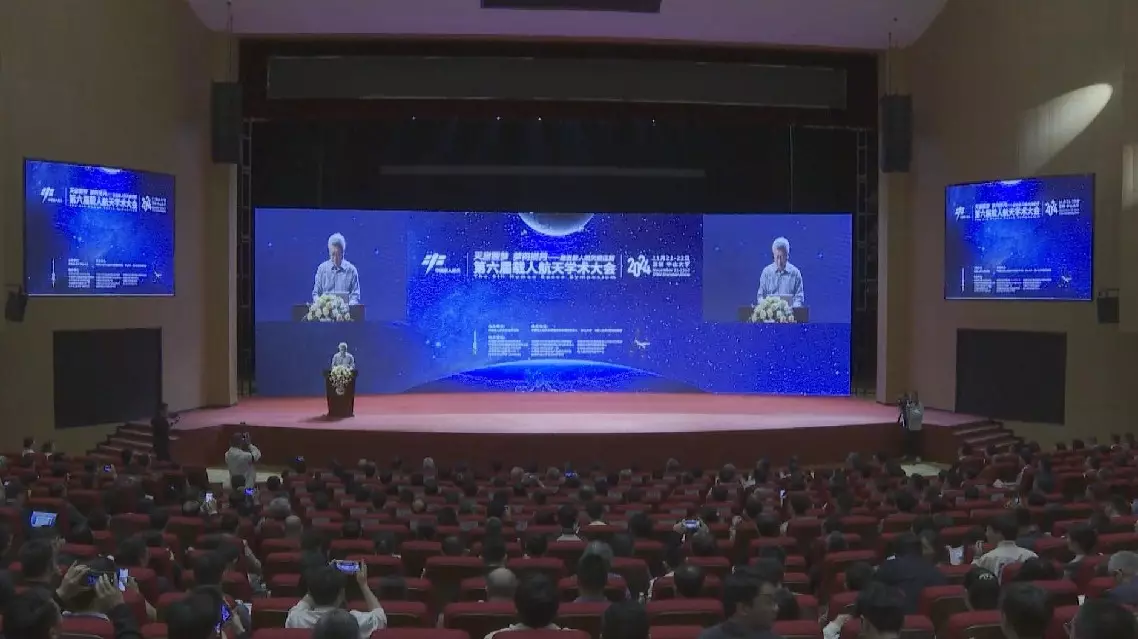
China's manned lunar mission progressing smoothly
The 2024 U.S.-China People's Dialogue is being held in Beijing, bringing together personages from academia, business, tourism and other fields to share experiences and exchange views on how to further promote mutual understanding between people, especially the younger generation of the two countries.
The topics under discussion during the event from Wednesday to Saturday focus on tourism and ecology, artificial intelligence, and sports and education. Chinese and American attendees will discuss the prospects of cooperation and share their views and suggestions on the future development of China-U.S. relations.
Stephen Orlins, president of the National Committee of U.S.-China Relations, drew upon his personal stories of engagement to discuss the value of the bilateral people-to-people connections, calling for carrying forward the goodwill and achievements built up over decades of interactions.
"The people-to-people relationship is the foundation of the U.S.-China relationship. It is the foundation. We, as the National Committee of United States-China Relations, when we hosted the Chinese ping-pong team in 1972, that fundamentally altered America's perception of China and Chinese. And in the prior year, 1971, the Chinese hosting of the American ping-pong team fundamentally altered China's perception and Chinese perception of America and the American government and that led, that put the United States and China on a trajectory. What we need to think about is how do we strengthen that," he said.
The non-governmental connections between Chinese and American people have been growing and deepening since young table tennis players from the two countries kick-started the progress toward normalizing China-U.S. relations in Beijing more than 50 years ago.
Kuliang, a place in east China's Fujian Province, has witnessed the deepening bond between Chinese and American people ever since a number of U.S. citizens began living there over a century ago.
A group of American veteran pilots of the Flying Tigers who fought alongside the Chinese army and people against the Japanese invasion during World War II have also contributed to promoting friendly exchanges between the two countries.
At a time when the U.S.' so-called "political correctness" of being tough on China has led to the low ebb in the bilateral relations, participants at the dialogue believe that the current problems and differences will not change the aspirations of the people on both sides for friendly cooperation, saying that the relations will certainly improve through more exchanges and dialogues.
"In this digital age, we have so much information, but because the information is so, lacks context that sometimes it can actually be more dangerous than helpful, right? So that's why I think we need to have people-to people-contact here. The next generation will not have enough people who know anything about China. We have to solve that problem," said David Moser, associate professor of Foreign Language at Beijing Capital Normal University.
Launched in 2023, the annual U.S.-China People's Dialogue brings together leading American and Chinese nationals from a wide range of business, social, and cultural fields to explore ways to foster greater people-to-people exchanges between the two countries, and to chart a path forward.
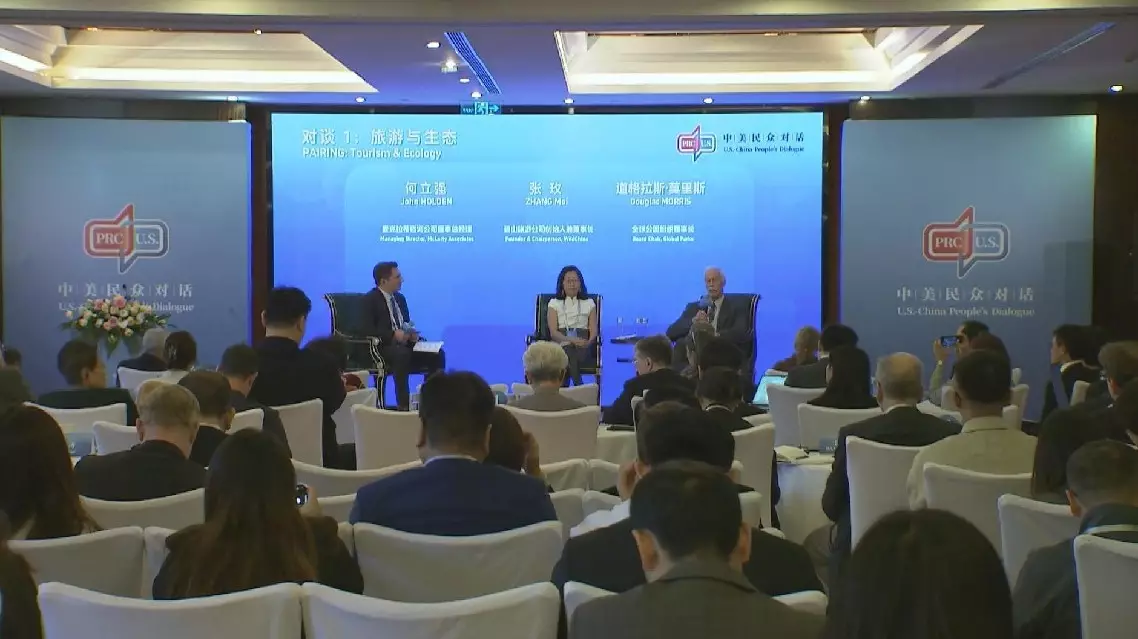
2024 US-China People’s Dialogue held in Beijing





